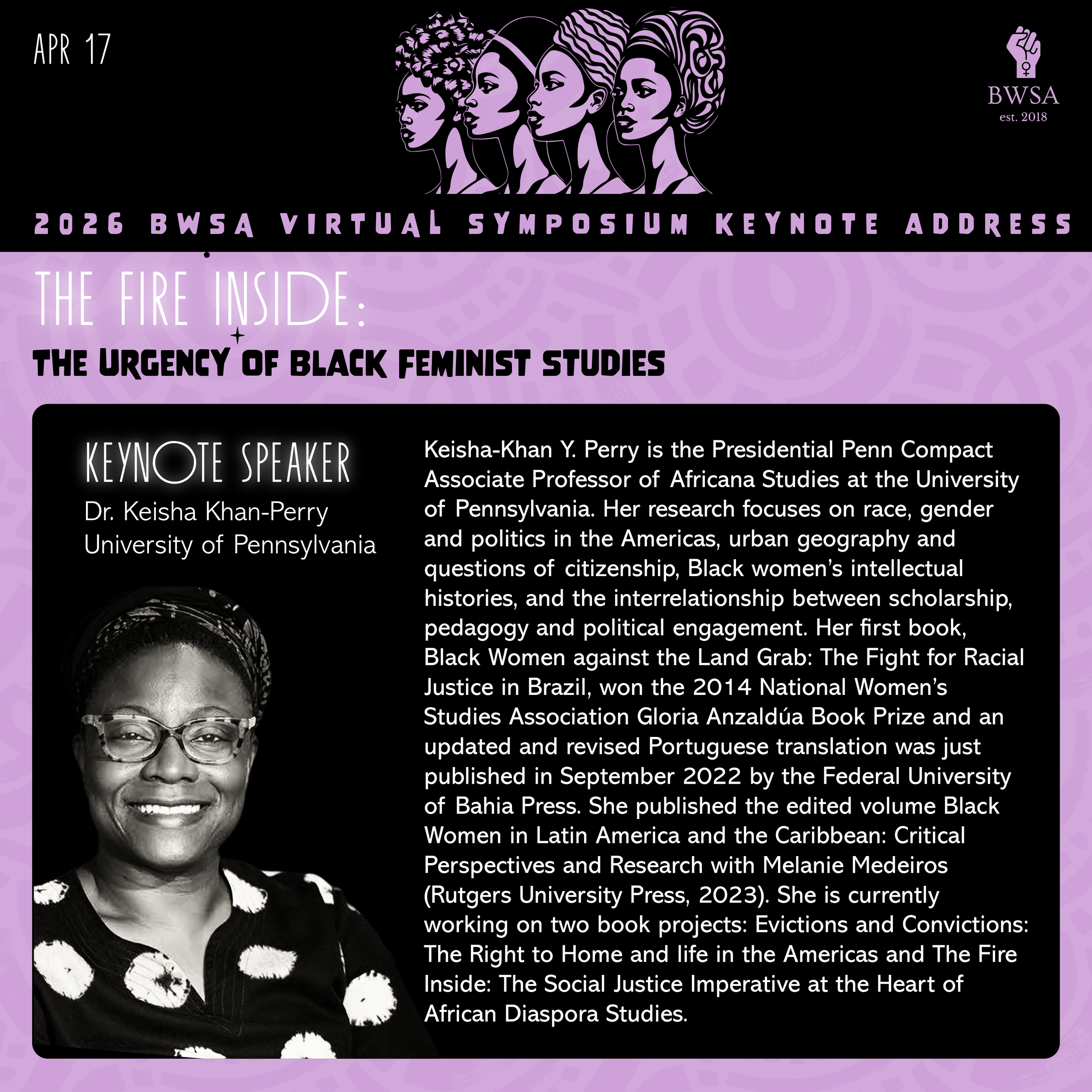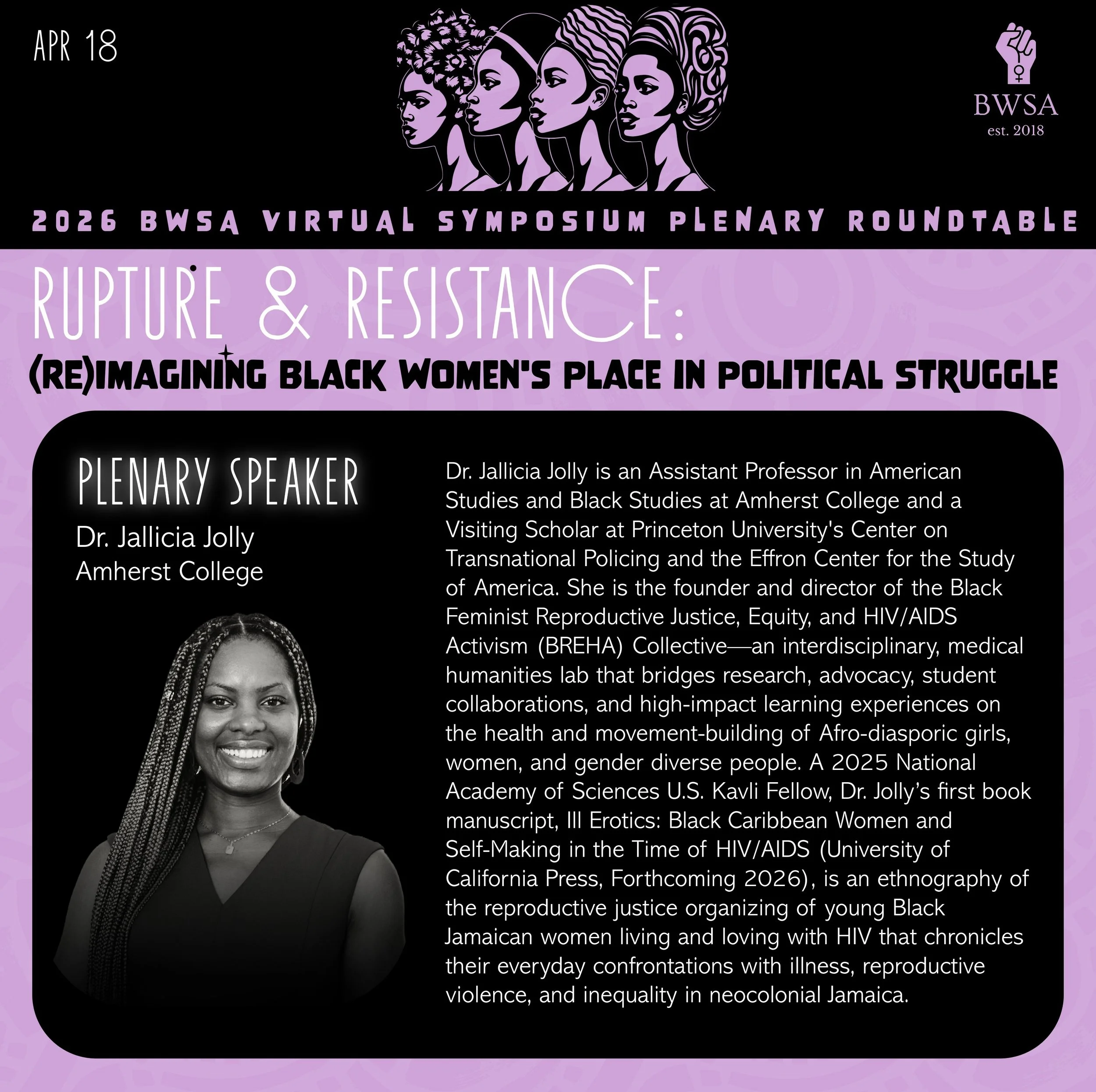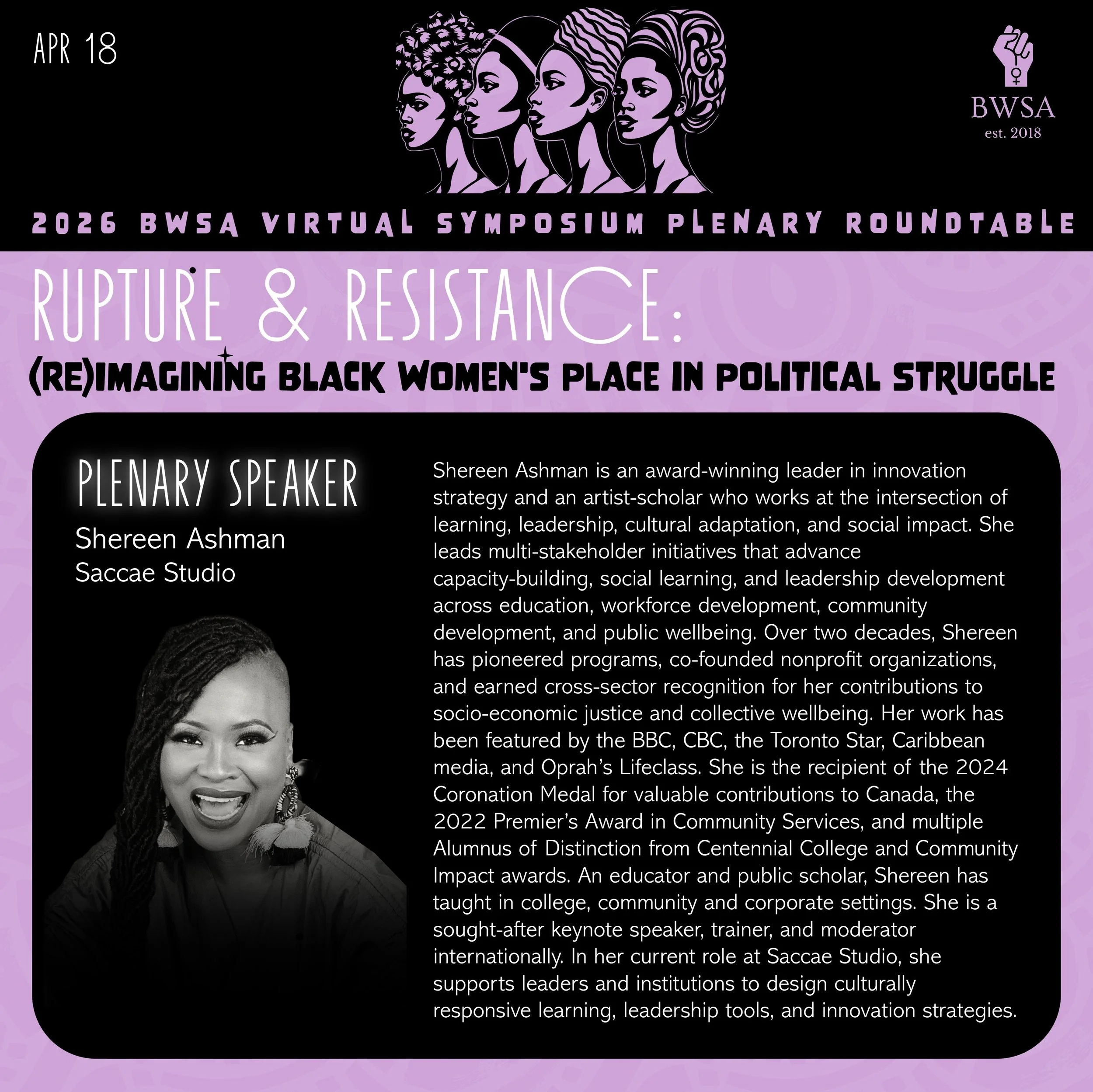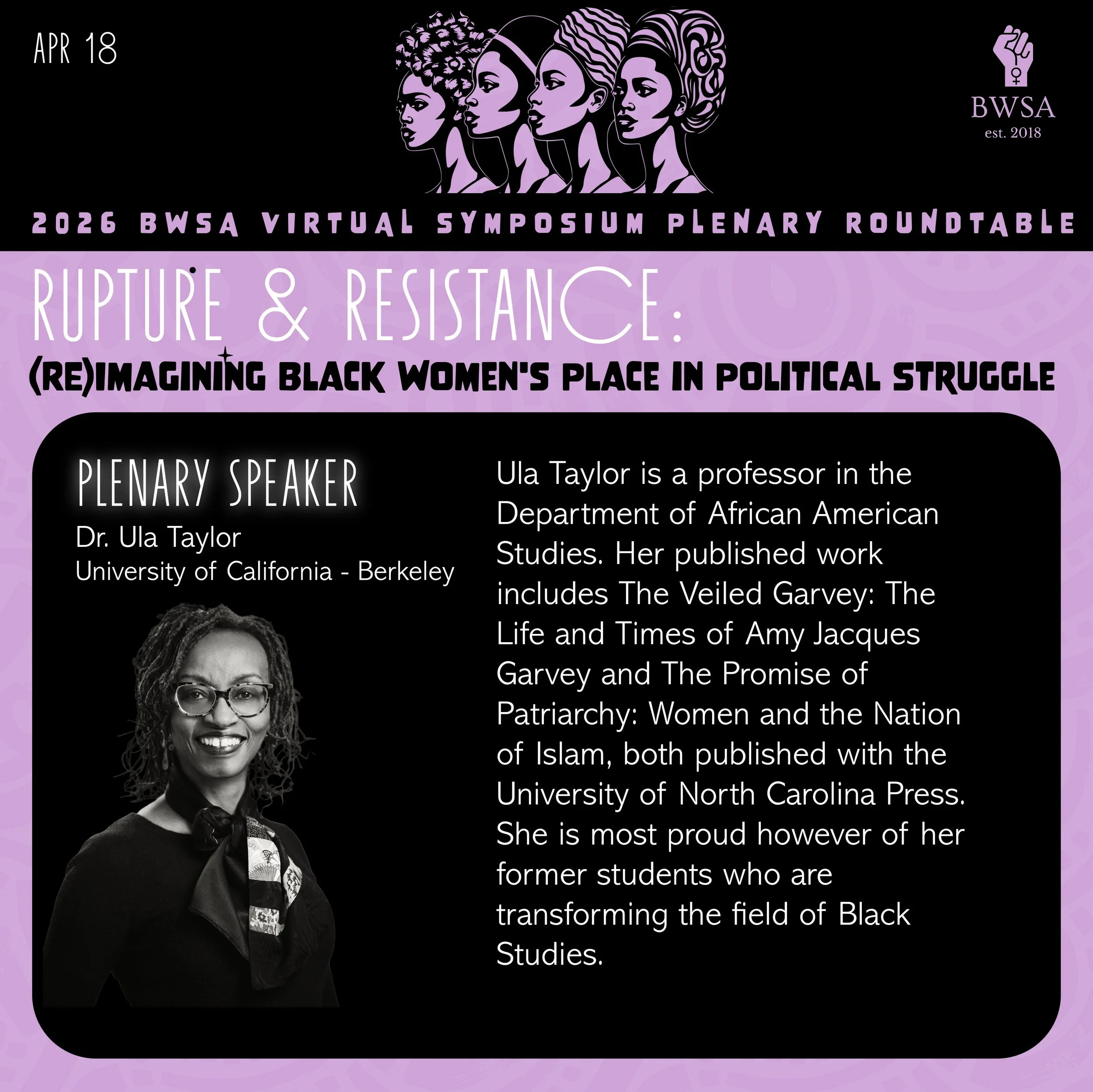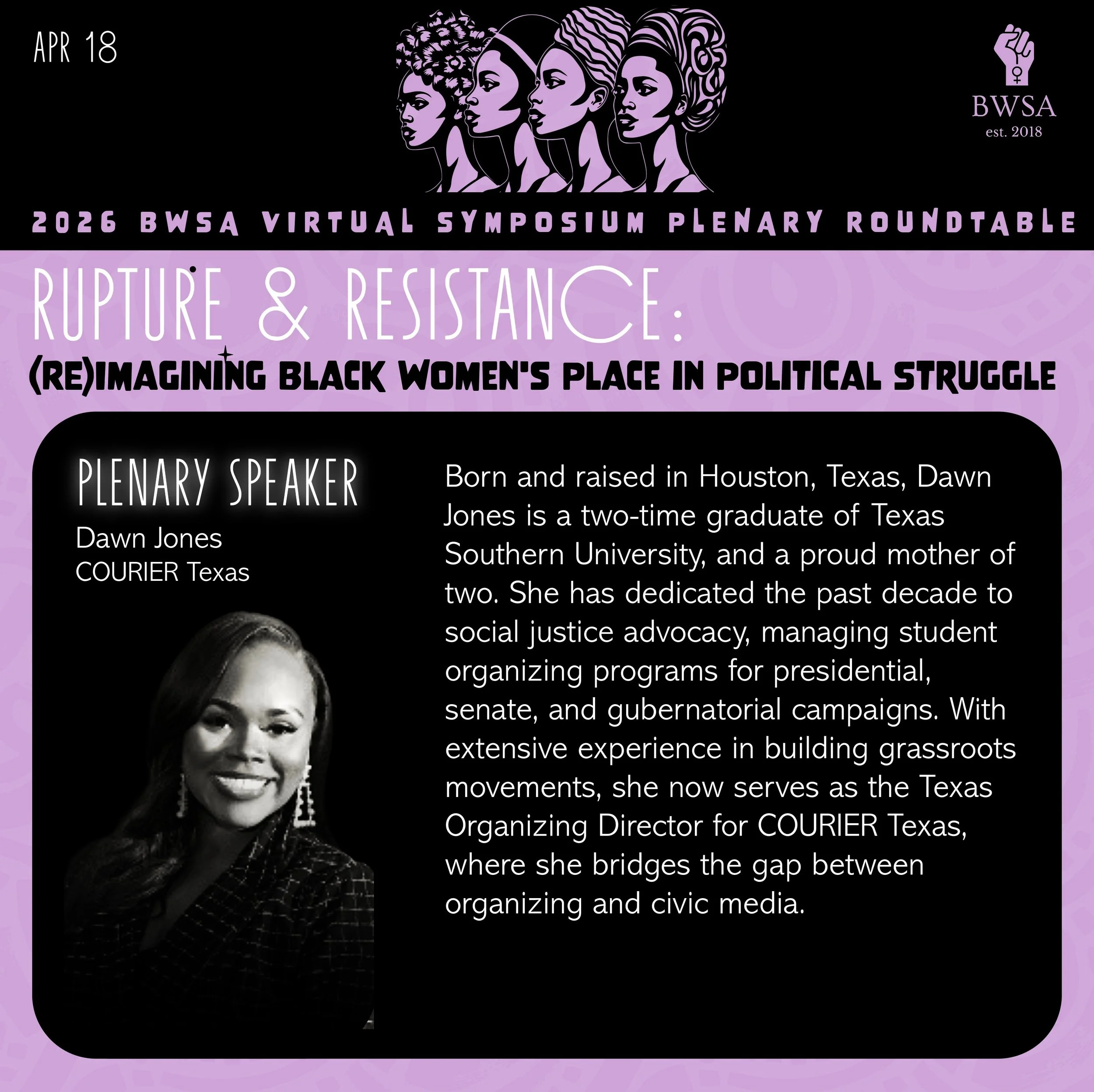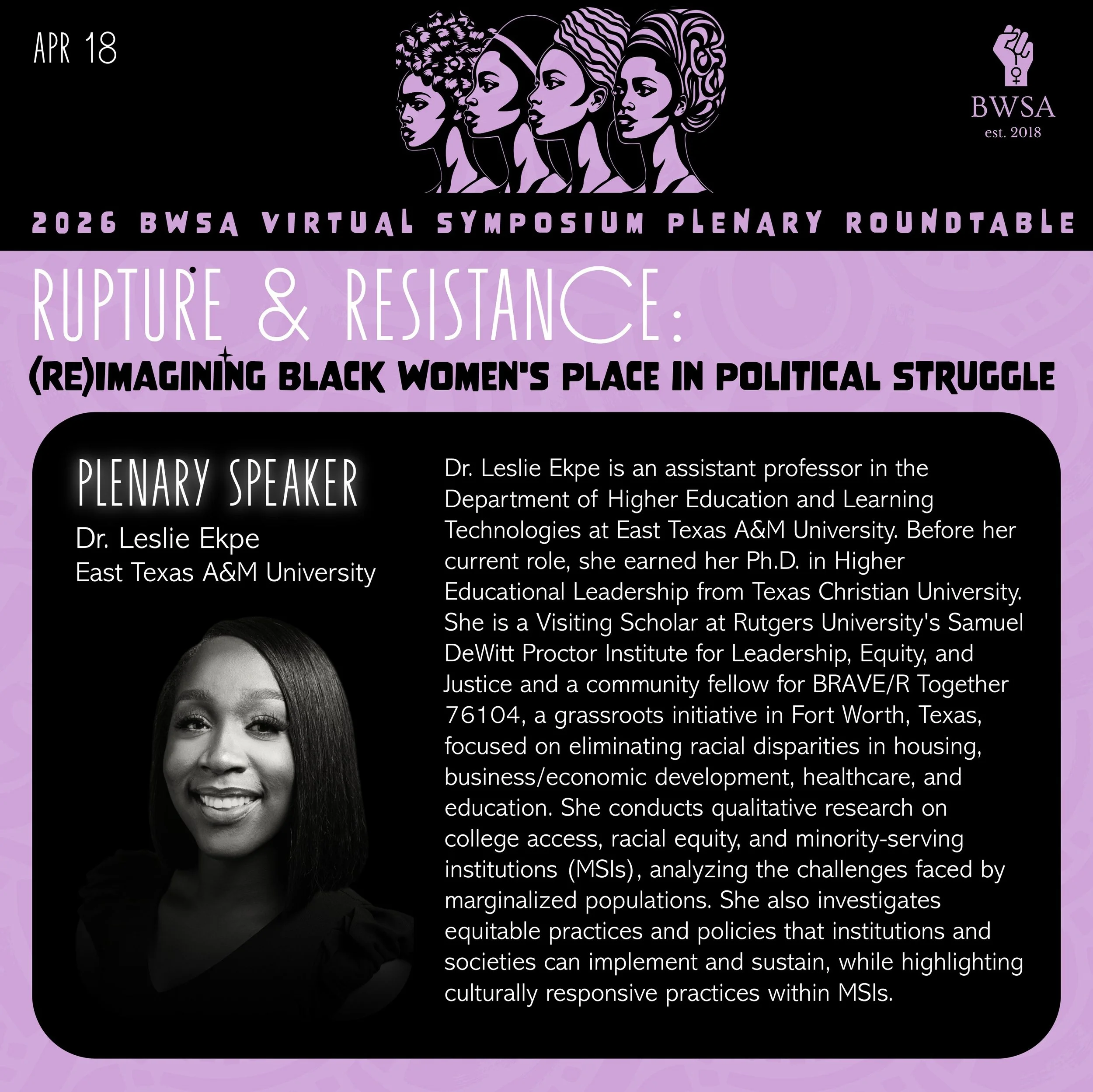Symposium
2026 Virtual Symposium
“We Hold the World Together”: Leadership, Labor and Belonging in an Era of Political Polarization
April 17-18, 2026
Registration is Now Open
Early bird registration is open from February 1st to March 1st!
This year’s theme, recognizes a simple truth: things don’t get done unless Black women do it. Together, we’ll explore the many ways Black women labor, lead, and forge belonging, and how these practices demand visibility and justice in a world that too often insists on our dehumanization and disposal. The symposium will feature conversations that engage labor, leadership, and belonging, individually and collectively, while also grappling with their possibilities and limitations. We warmly welcome activists, independent scholars, community leaders, and students, with special encouragement for participants joining from the Caribbean, Africa, Europe, and other regions outside of the United States.
Call for Papers
On January 2, 2024, after serving only six months as Harvard University’s first Black female president, Dr. Claudine Gay resigned from her role at the height of anti-war protests on campus. Just six days later on January 8, Dr. Antoinette “Bonnie” Candia-Bailey, an administrator of Lincoln University who had spent her doctoral career studying the hardships of navigating senior-level roles in higher education as a Black woman, died by suicide shortly after being terminated from her job. At the end of that same year, former Vice President Kamala Harris lost the election for president of the United States to a convicted felon. More recently, in 2025, Texas state representative Nicole Collier was kidnapped by her republican colleagues who refused to let her out of chambers for refusing to be illegally surveilled and monitored.
Always on the frontlines of battles and rarely ever the ultimate victor, Black women continue to bear “the brunt of whatever crisis the world faces.” Yet, despite political, economic, and cultural turbulence, Black women across the globe continue to emerge as critical actors. Whether it is the bastardized labor of the 92% of Black women who voted to elect Kamala Harris as the United States’s first female president, the bold leadership of figures like Prime Minister Mia Mottley of Barbados, or the borderless community building carried out by Black women activists across the world, Black women consistently respond to the most challenging global crises with radical strategies of resistance, survival, and even, refusal. Simply put, we hold the world together.
This year’s theme, “We Hold the World Together," summarizes the recognition that things don’t get done unless Black women do it! It explores the various ways Black women labor, lead and forge belonging in an effort to demand visibility and justice in a world that insists on our dehumanization and disposal. Thus, we invite abstracts that examine labor, leadership and belonging individually or collectively as well as those that interrogate their possibilities and/or limitations. We especially welcome activists, independent scholars, and community leaders from the Caribbean, Africa, Europe and elsewhere outside of the United States to submit. Topics for consideration include but are not limited to:
Diasporic Black feminist leadership practice
Black women political leaders/leadership
Black woman-led activism/organizing
Misogynoir in education/higher ed
The impact of AI on Black women’s job security
Disposability/ableism
Reimaginations of labor
Climate/environmental justice
Human rights/gender equity
Political polarization
Criminality and the Law
Citizenship and (im)migration
ICE/State-sanctioned kidnapping and violence
Black women’s wellness/mental health
Caretaking/community-building/belonging
Session Formats
Panels examine specific problems or topics from a variety of perspectives given that they include 3-4 participants and perhaps a moderator. Panels may present alternative solutions, interpretations, or contrasting points of view on a specified subject or in relation to a common theme. Panel members are expected to prepare papers addressing central questions described in the proposal. A typical structure for a session with four papers allows approximately 5 minutes for the moderator to introduce the session, 10 minutes for each presenter, and 30 minutes for discussion. Panel proposals should include a panel abstract, paper titles from each prospective presenter, and a rationale for your panel.
Roundtables include 4-6 presenters and one moderator who makes brief, informal remarks about a specific idea or project. They allow for extensive discussion and audience participation.
Workshops provide an opportunity to exchange information or work on a common problem, project, or shared interest. Workshops are typically experientially oriented, interactive, and grounded in a specific methodology or research agenda, and include brief presentations that allow adequate time for activity and discussion.
Individual paper proposals are submitted individually and arranged into sessions with 3-4 presenters by the Symposium Review Committee. In paper sessions, authors present brief papers followed by audience discussion.
Submission Instructions
Each proposed presenter must be a current member of the Black Women’s Studies Association. Submissions will not be reviewed if you are not a current member. The BWSA membership year runs from September 1 - August 31 annually. To join BWSA or renew your membership, click here. If you are unsure if your membership is current, please email membership@blackwomensstudies.com.
To submit a proposal, please upload a single file with the following information to a secure Dropbox folder using this link. Each proposal requires contact information for all presenters, abstract with session/paper title(s) for each paper and the overall panel, if applicable (150 words max), a rationale (150 words max), and a short list of potential works cited.
Contact information: names, email addresses, and affiliation for each participant.
Abstract: Describes the proposal’s topic in clear and concise language. Include a title for each paper and the panel. Please include an abstract for each paper being presented in
Rationale: Your rationale should include the following, as appropriate:
Objective or purpose of the paper, panel, workshop, etc.
Perspective and/or theoretical framework and/or references to relevant texts, research, or on-going debates in women’s and gender studies or related fields.
Results and/or conclusions and point of view.
Relevance to the conference theme or subtheme.
Discussion of how the session will be structured.
Note: For panels, one rationale per submission will suffice. However, each paper’s abstract must be included in the submission file.
Works Cited: Should include relevant scholarship from the field of Black Women’s Studies, Women, Gender and Sexuality Studies, and its subfields.
Please name your file in the following format: LastNameFirstName.SessionTitle. If submitting on behalf of a panel or roundtable, please include the last and first name of the primary session organizer. You may direct any questions to Dr. Jessica S. Samuel, BWSA Conference Chair, at conference@blackwomensstudies.com.
Deadline
The submission window is now closed.


